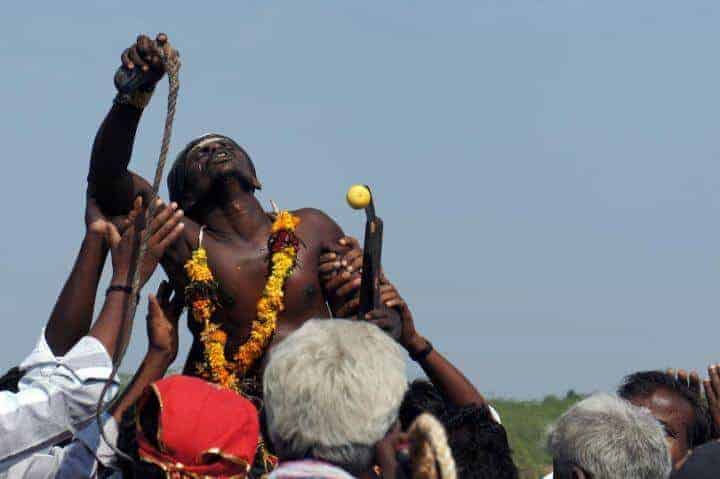Religious expression has a central role in societies around the world, but exactly what role it plays isn’t always clear. Santa Fe Institute Omidyar Postdoctoral Fellow Eleanor Power has an answer: whether it’s walking across hot coals or simply going to church on Sunday, people who participate in religious acts send a potent signal to others that they’re ready and willing to contribute to their communities.
Power’s study, published in the journal Evolution and Human Behavior, was designed to test whether a model called signaling theory applied to religion. Signaling theory’s key prediction is that people will pay a price in time, money, or even physical pain to demonstrate something to others–in this case, people would engage in religious acts to demonstrate their generosity, devotion, and so on to others.
There’s evidence to suggest that regular churchgoers, for example, really are more generous than others. But to demonstrate that signaling theory is part of the answer, it’s not enough to prove that people who engage in religious acts also engage in prosocial behavior–you also have to show that others in the community get the message.
Do religious acts get the message across? Power spent two years living in a pair of Tamil villages in southern India studying the question. Based on interviews, formal surveys, and other observations, Power’s answer is “yes.” She found that those who engaged in more religious action were perceived as more hardworking, more generous, and even stronger compared to others. Interestingly, dramatic acts in the name of religion, such as being pierced by hooks and swung from a crane didn’t send the strongest messages–instead, the connection was strongest for the simple act of regular worship. “That has often a bigger effect on your reputational standing than big, extreme acts,” Power says.
Also surprising: just how much of an effect religious acts had on others. “These are people who know each other well and have many lines of evidence to draw on, of which religion is just one.” Power says. “Given all those other opportunities for observing one another, the fact that there are such strong relationships–it’s pretty telling.”
If our reporting has informed or inspired you, please consider making a donation. Every contribution, no matter the size, empowers us to continue delivering accurate, engaging, and trustworthy science and medical news. Independent journalism requires time, effort, and resources—your support ensures we can keep uncovering the stories that matter most to you.
Join us in making knowledge accessible and impactful. Thank you for standing with us!

